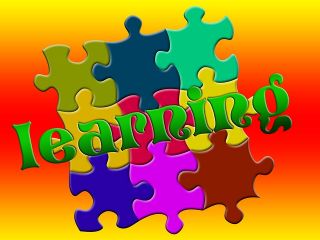Health
4 Things I Won't Forget Should I Regain My Health
Chronic pain and illness have taught me many life lessons.
Posted November 6, 2013

I’ve been chronically ill since I contracted a viral infection in 2001. Were I to recover, here are four things I won't forget. I'll take them with me into the land of the healthy.
Living in the present moment is the key to happiness.
When I first got sick, I spent most of my days ruminating over a life I could no longer lead and worrying about a life I couldn’t predict with any degree of certainty. It made me miserable. Then I remembered a book I’d read many years ago: Present Moment, Wonderful Moment by the Vietnamese Zen monk and teacher Thich Nhat Hanh. In it, he said:
When we settle into the present moment, we can see beauties and wonders right before our eyes—a newborn baby, the sun rising in the sky.
Encouraged by his words, I began to practice staying in the present moment. I devised an exercise I call “drop it” (described in detail in my book How to Be Sick). When my mind is stuck in regret about what I can no longer do or when I’m caught up in worry about what the future holds, I gently but firmly say: “drop it.” Then I immediately direct my attention to some current sensory input. It could be something I see or smell. It could be the physical sensation of my feet on the ground or of my breath coming in and out of my body. Dropping a stressful train of thought about the past or the future and relaxing into the present moment is like shedding a heavy burden—and that feels good.
This practice is for both the healthy and the sick. None of us is likely to have made it this far in our day without our minds hosting a stressful thought or two about the past:
- “I should have been more assertive at the meeting yesterday.”
- “I shouldn’t have talked so much when my friend came over; I'm sure she was bored.”
(Note how thoughts about the past often contain self-critical “shoulds” and “shouldn’ts.” These always make us feel bad because they make us feel inadequate.)
And, none of us is likely to have made it this far in our day without our minds hosting a stressful thought or two about the future:
- “I’m worried that at the teacher-student conference tomorrow, the teacher is going to say that my son is a problem in the classroom.”
(I remember when my son was in third grade and had become quite contrary at home, challenging almost everything we said to him. In the days leading up to the teacher-student conference, I spent a lot of time worrying about what the teacher was going to say. At the conference, she described this terrific kid for whom she clearly had a lot of affection. My husband and I looked at each other with a “she thinks we’re someone else’s parents” look. When we half-jokingly said to her that it sounded like she was describing a different kid from the one we lived with, to my unexpected delight, she responded by praising our parenting skills, saying that because we allowed him to let off steam at home, he was better equipped to handle the world outside! All that worrying was for nothing.)
Everyone could benefit from becoming mindful of when it’s time to put ruminating about the past and worrying about the future aside. This simple “drop it” practice can help. With it, you can experience the relief that comes from living in the present moment, and see, as Thich Nhat Hanh said, beauties and wonders right before your eyes.
Rushing to judgment about others can lead to painful misunderstandings.
Korean Zen master Seung Sahn liked to tell his students to keep a “Don’t-Know Mind,” by which he meant not clinging to views and opinions about the world and other people. In a magazine article, he said:
If you keep a don’t-know mind, then your mind is clear like space and clear like a mirror.
When I got sick, I rushed to judgment about friends who didn’t keep in touch. I assumed they no longer cared about me. As it turned out, one friend wasn’t in touch because she had developed health problems of her own, and another was terribly uncomfortable around illness because of a traumatic experience she’d had as a child when her own mother became ill.
Whether in good health or not, we’re all experts at spinning stressful stories about other people—stories in which we impute motives and intentions to them that more often than not have no basis in fact. In truth, we don’t know what’s happening in another person’s life unless we inquire about it. Yes, it may be time to let a relationship go and move on, but before doing so, consider asking yourself whether you’ve rushed to judgment without checking out what might really be going on.
Looking beyond my problems helps me be at peace with the life I have.
I used to feel that the world had betrayed me as if I'd been singled out to suffer chronic pain and illness. This self-focused thinking did nothing but make me feel more miserable about my circumstances. By paying attention to the world around me, I've learned that people everywhere experience difficulties in their lives. Expanding my thinking in this way helps me to feel at peace my life, however it unfolds. In the words of Joseph Campbell:
We must let go of the life we have planned, so as to accept the one that is waiting for us.
Should I recover my health, I’ll keep his words with me.
Being nice to myself is the best medicine.
When became sick, I definitely was not nice to myself! I thought my body had betrayed me. I thought my mind was weak because I couldn’t “will” myself back to health. It took several years, but I finally learned to treat myself kindly. Once I began being speaking to myself with care and compassion, I realized how much I could have benefitted from this supportive self-talk before I got sick.
***
I hope to regain my health. Should that day come, the lessons I’ve learned from years of illness will be my companions in the land of the healthy.
© 2013 Toni Bernhard. Thank you for reading my work. I'm the author of four books:
How to Be Sick: Your Pocket Companion (for those who've read How to Be Sick and for those who haven't). May 2020
How to Live Well with Chronic Pain and Illness: A Mindful Guide (2015)
How to Wake Up: A Buddhist-Inspired Guide to Navigating Joy and Sorrow (2013)
All of my books are available in audio format from Amazon, audible.com, and iTunes.
Visit www.tonibernhard.com for more information and buying options.
Using the envelope icon, you can email this piece to others. I'm active on Facebook, Pinterest, and Twitter.
You might also like "Six Common Misconceptions about the Chronically Ill."
Quote from Master Seung Sahn: Cutting Edge, American Zen Arts Quarterly, Vol. 1, No. 1 (Spring 1985)




